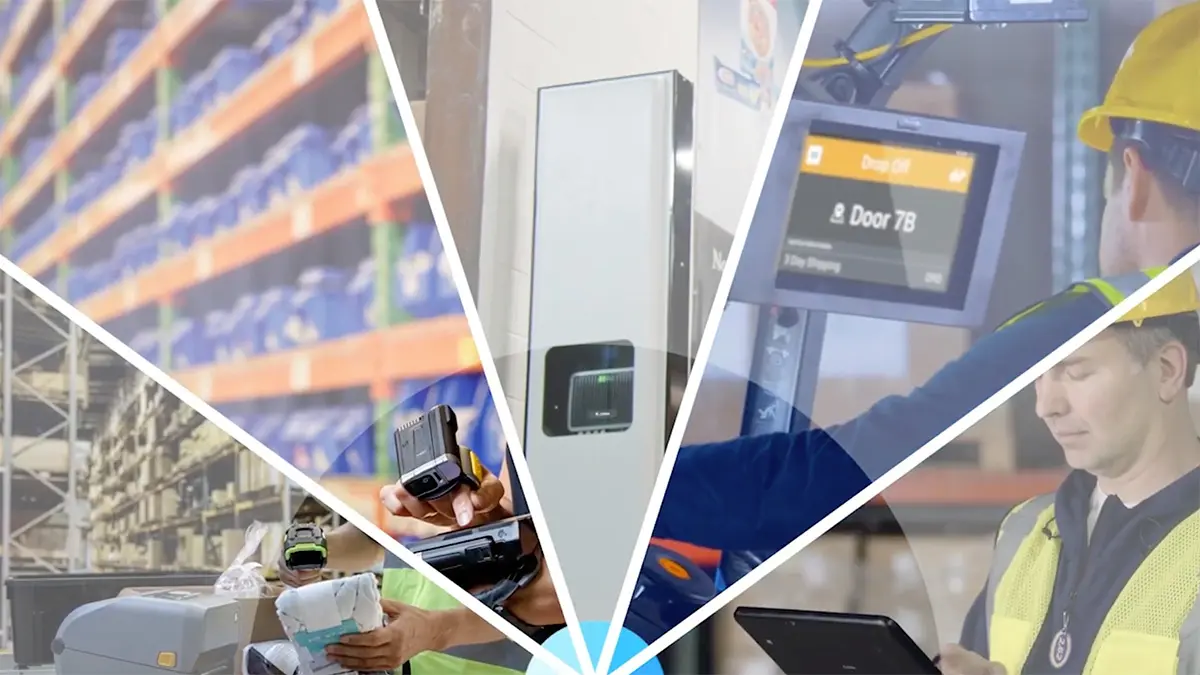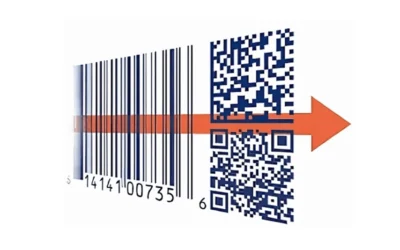Discover how barcode and RFID technology revolutionize logistics in the eCommerce era, addressing key challenges with innovative solutions.
The eCommerce logistics industry is constantly growing. By 2025, it’s expected to be worth $524.1 billion. That’s a lot of money dedicated to moving products from point A to point B.
Of course, what most people don’t realize is how much happens between the two points. It’s not just a straight line. That’s why barcode and RFID solutions for logistics are so important in today’s industry.
Each company has its own process to fulfill orders from their customers, but generally, it looks something like this:
- Order received through online portal, phone call, or in-person.
- Order processed and sent to the warehouse.
- Item retrieved by warehouse staff.
- Item packed carefully and labeled with an appropriate address.
- Item shipped with tracking information provided to the customer.
- Item arrives at its destination.
While this is a pretty straightforward process, there are some order fulfillment challenges you simply have no control over.
- Slow shipping speeds.
- Inventory delays from the manufacturer.
- Damage during transit.
Other challenges hit a little closer to home having a direct impact on your warehouse operations. However, with some forward thinking and a little help from MSM Solutions, you can reduce the impact these obstacles have on your operations by creating logistics strategies that get your products from point A to point B faster, cheaper, and more accurately.
High Order Volumes
It’s no secret that online order volumes increased exponentially during the pandemic. The U.S. saw 10 years of growth in eCommerce sales in just three short months. This surge created a backlog of order delays as warehouses scrambled to keep up with demand while struggling to bring in new inventory from broken or disrupted supply chains.
The key to success is to adopt solutions that meet your customers’ expectations while still operating within budget. This means taking a hard look at your processes to determine which provide the best value and which are simply inefficient.
Inefficient Processes
Customers expect service to be fast, cheap, and accurate. However, order volume increases put strains on your fulfillment processes. Too often, warehouses fail to upgrade to new and more efficient processes, depending on antiquated methods of inventory storage, tracking, retrieval, and shipping. Oftentimes, this means sending your warehouse workers out to locate lost products and wasting time and money in the process.
By upgrading your processes and making your operations more transparent and fluid, you can get comprehensive visibility into your workflows, inventory, and labor practices. This is difficult to do if you have an overly-complicated logistics software solution.
Complicated Software
The larger your operations are, the more you depend on software to help you deliver goods and products to your customers. But what happens when the solution you’ve deployed is difficult to use without extensive training, doesn’t integrate with your other business applications, and doesn’t offer multiple functions? It hinders your ability to operate, delays your shipping speeds, demoralizes your employees, and alienates your customers.
In today’s customer-centric market, you need a software solution that offers multiple benefits such as:
- Fully integrates with your existing and future applications
- Improves or maintains customer fulfillment timelines
- User-friendly interface that is easy to learn and simple to use
In addition, your software solution should also help you manage your inventory.
Inventory Management
One of the worst things you can do in eCommerce is run out of inventory, especially if your system says you still have products in stock. Not only does it disappoint your customer, but it makes you look unreliable and unprofessional.
A proper software solution will help you keep track of not only the number of products you have in stock but where they are, too. This helps your inventory retrieval and shipping processes be faster and more accurate.
Forward Thinking Fulfillment with MSM Solutions
No business operation is static. There will always be ebbs and flows that create periods of slowdown and rushes of demand. You need to be ready for both. By planning and thinking forward, you can create methods and procedures that help prepare you for changes in your supply chain while doing everything you can to satisfy customer demand.
MSM Solutions uses barcode and RFID technology to manage your warehouse operations so you gain complete control over your products and assets.
- Barcode and RFID tags and labels allow you to identify individual products making it easier to track, store and retrieve.
- Handheld RFID and Barcode readers help you track products in the warehouse by combining flexibility, ease of use, and connectivity.
- Fixed RFID readers deliver high-performance read capabilities that easily support long-range applications.
- RFID reader antennas can accurately read tags individually or multiple tags located on a densely packed pallet.
By leveraging this technology with MSM Solutions’ customizable software solution, PortalTrack, you’ll create new processes that enable you to track and manage the products in your warehouse in real-time – even if they’re in motion.
This gives you the data insight you need to think forward so you never fail to deliver your products from point A to point B. To learn how MSM Solutions can help you stay in front of customer demand, click here.
Key Takeaways:
The eCommerce logistics industry is rapidly growing, with complex challenges in order fulfillment.
Barcode and RFID technology offer vital solutions for efficient warehouse operations, tracking, and inventory management.
MSM Solutions’ PortalTrack software, combined with these technologies, enhances real-time product management and process efficiency



